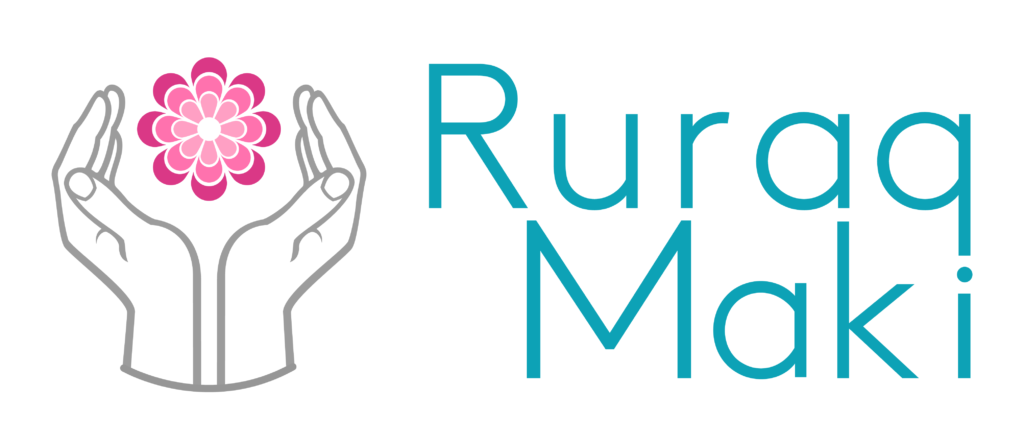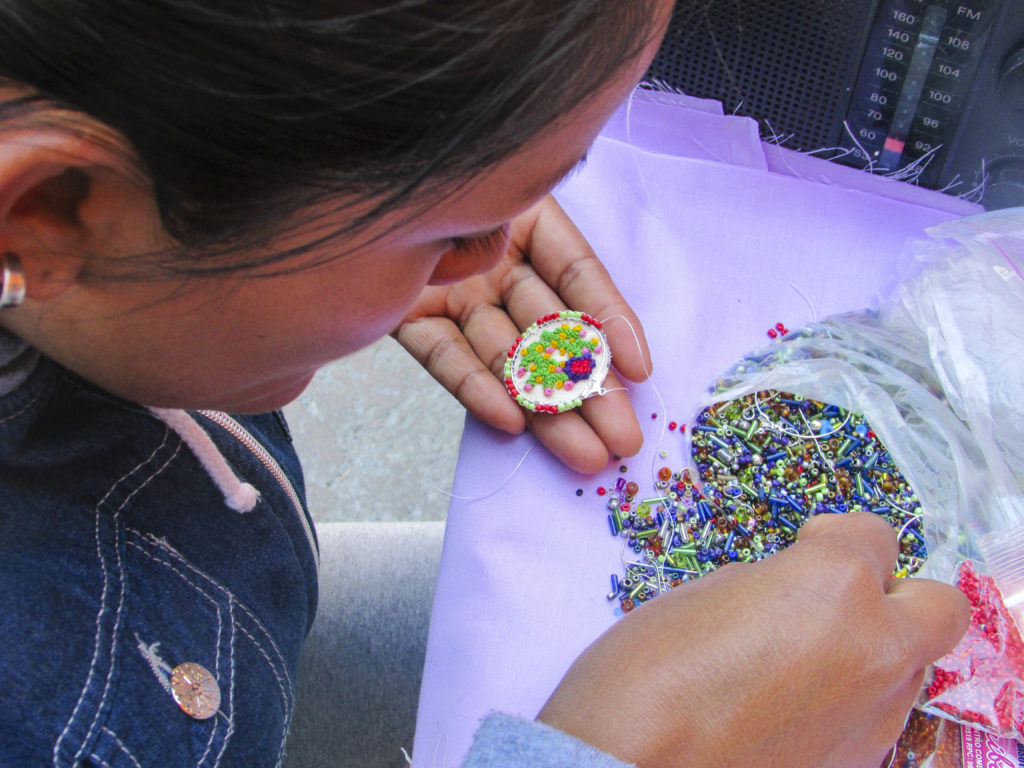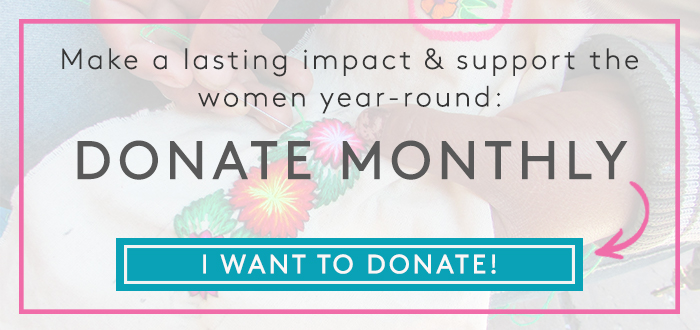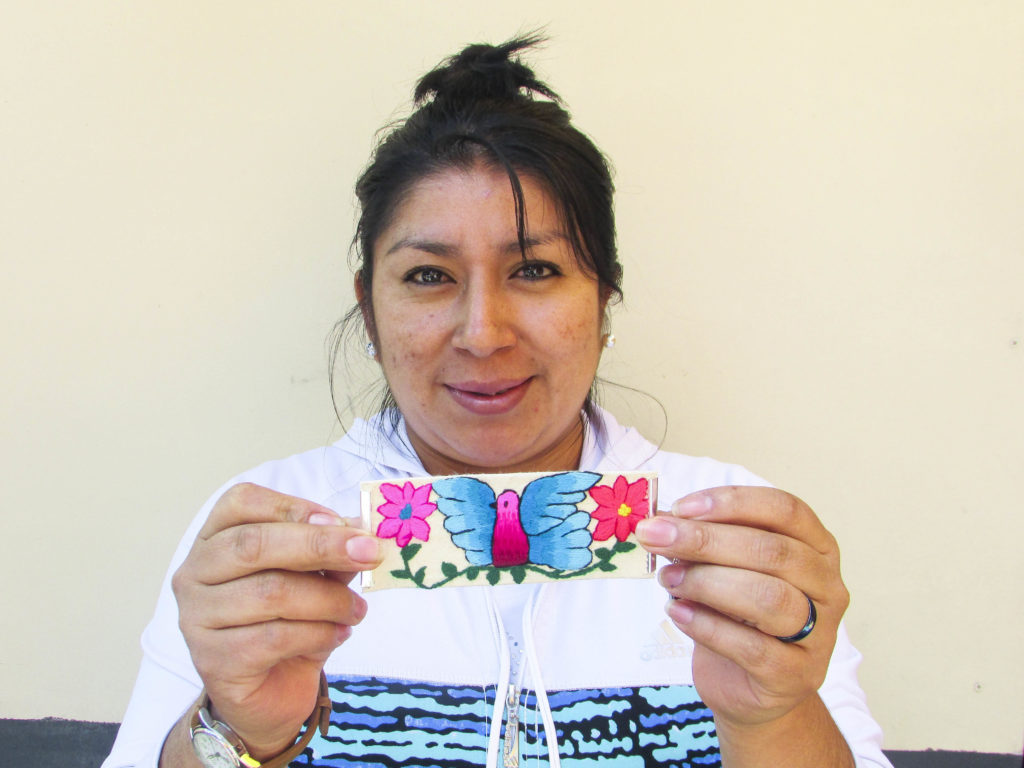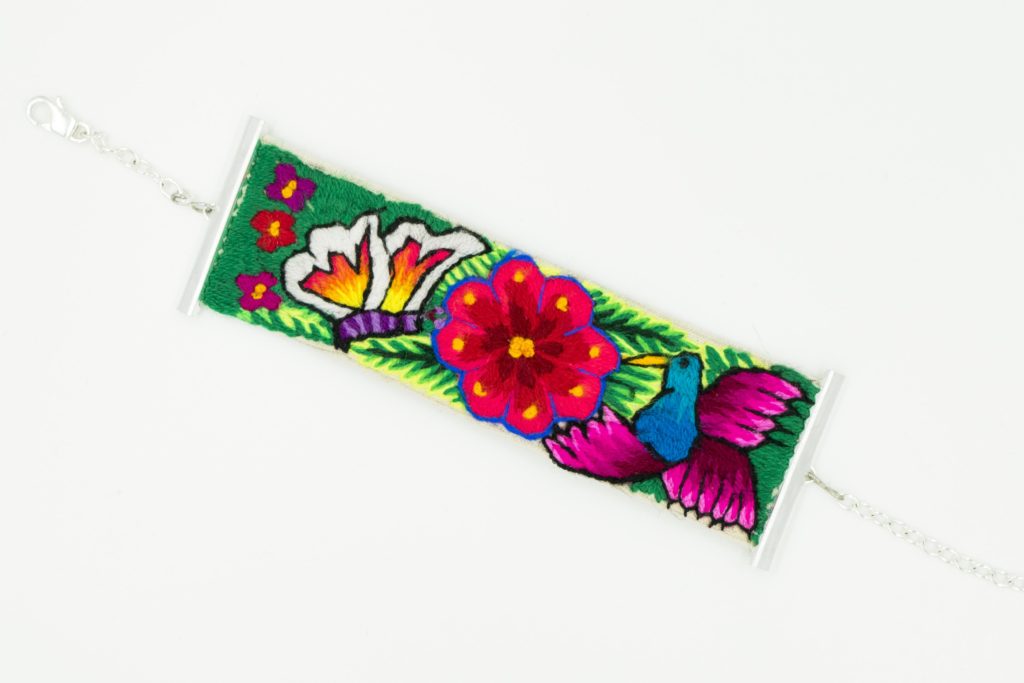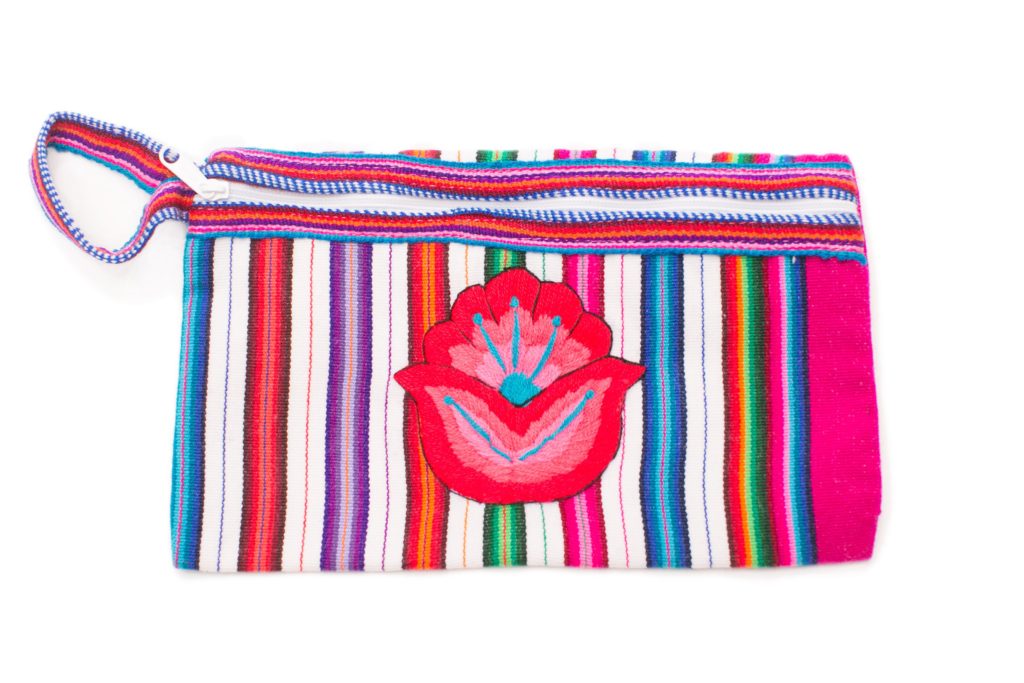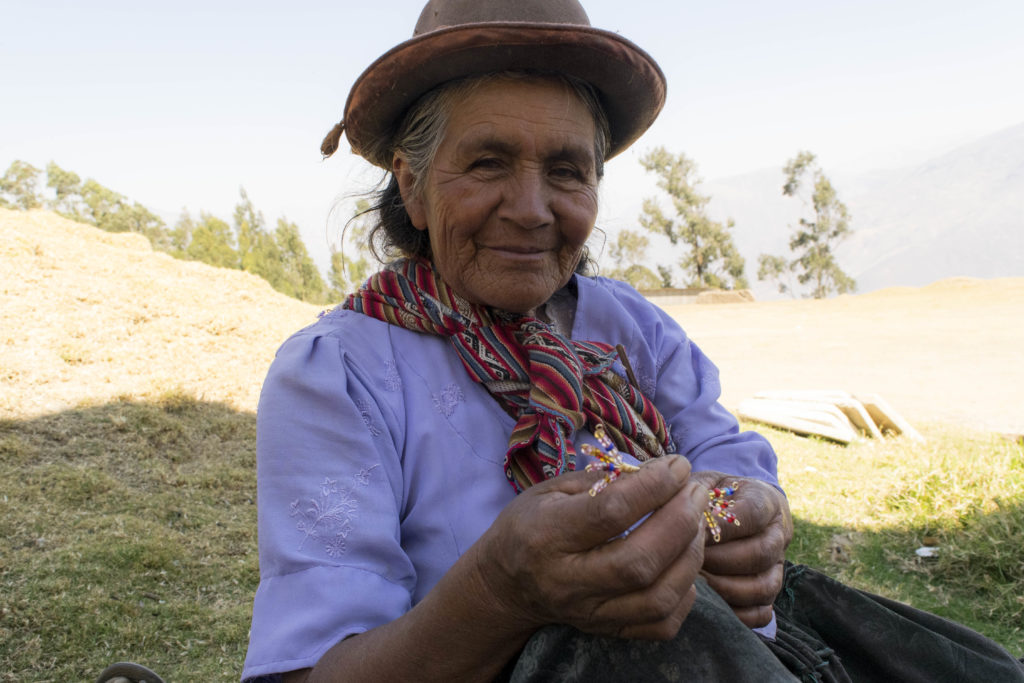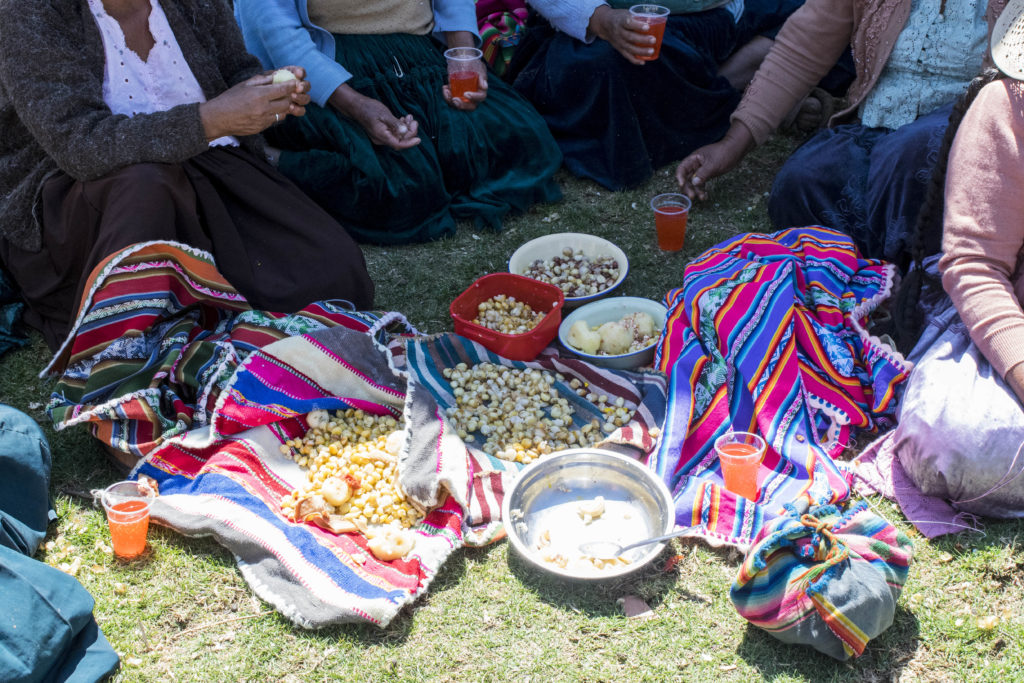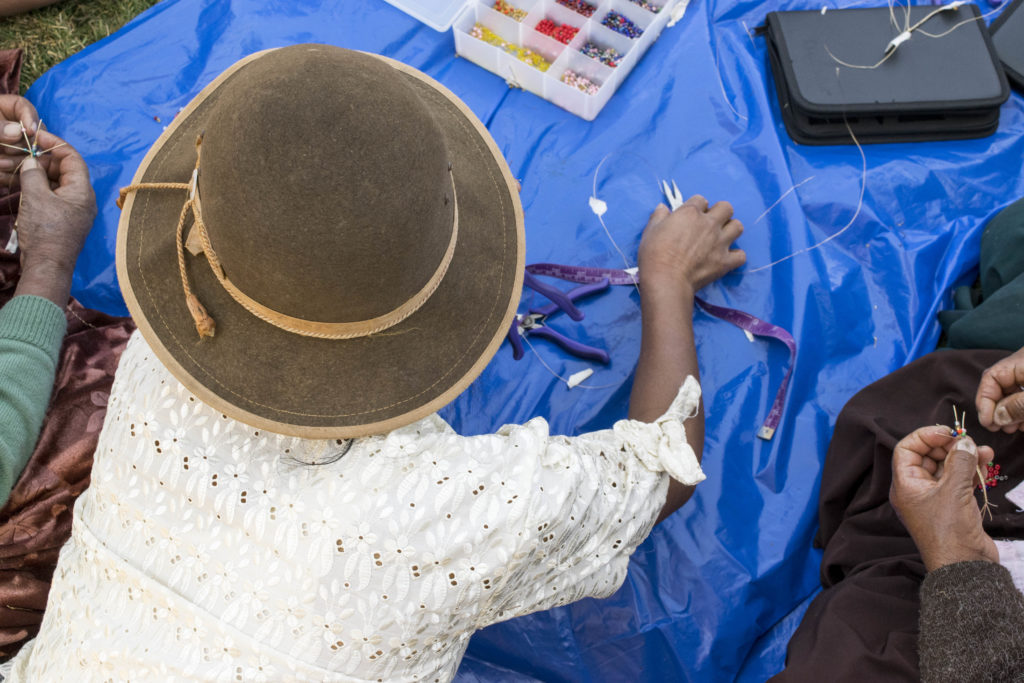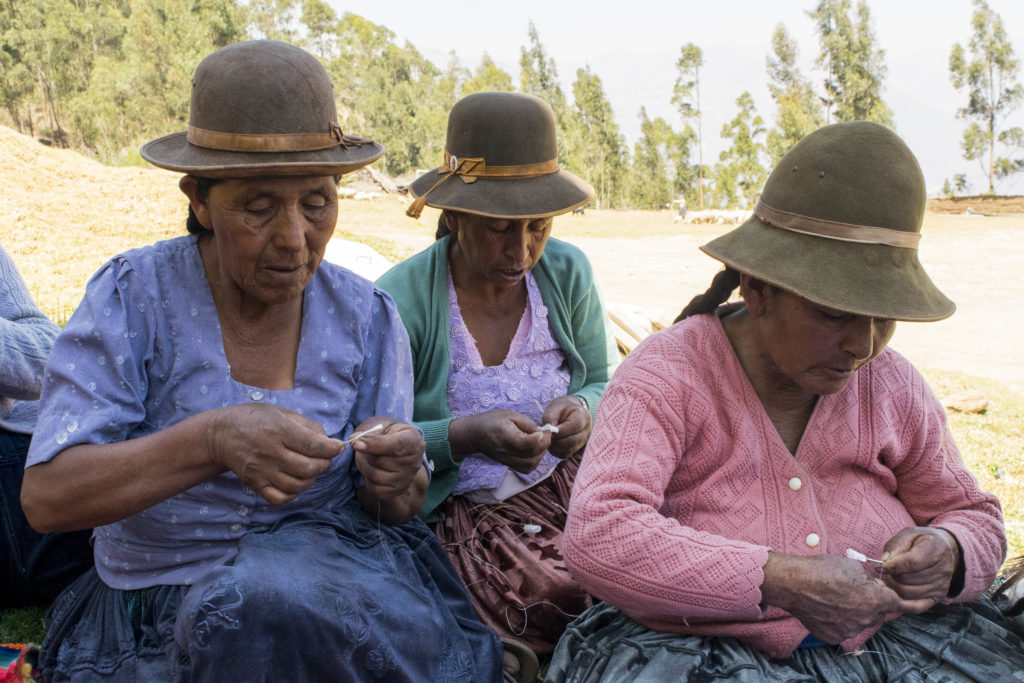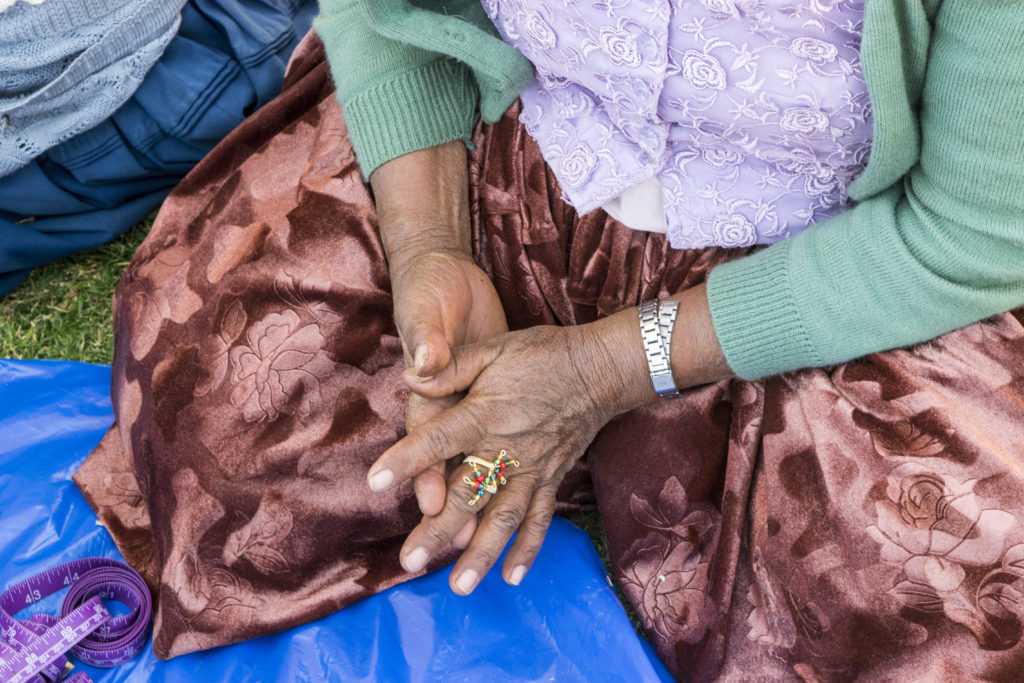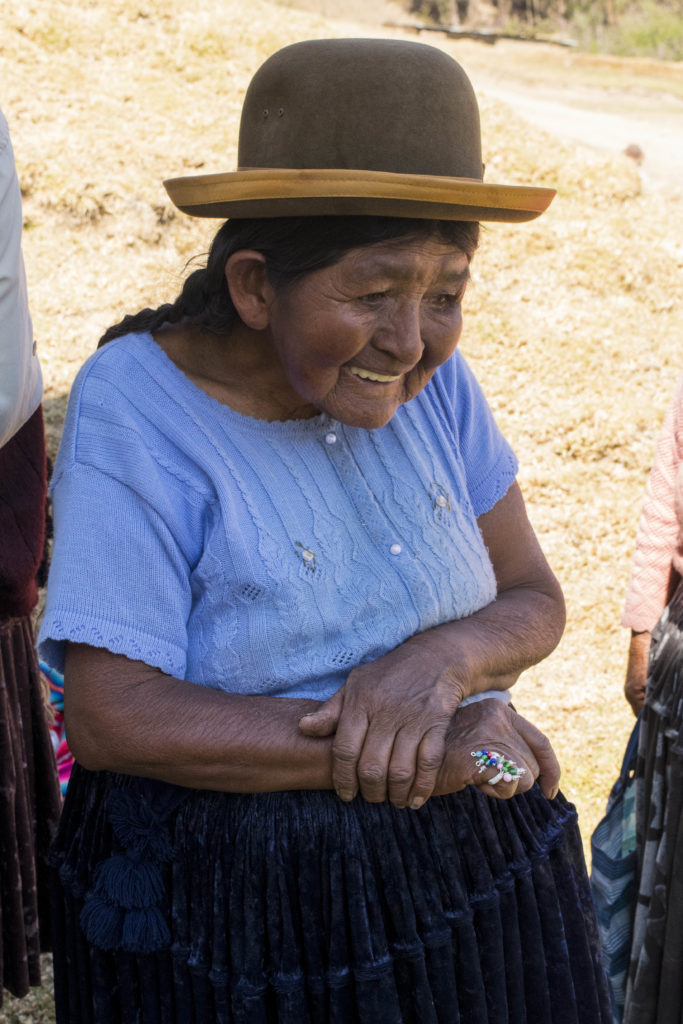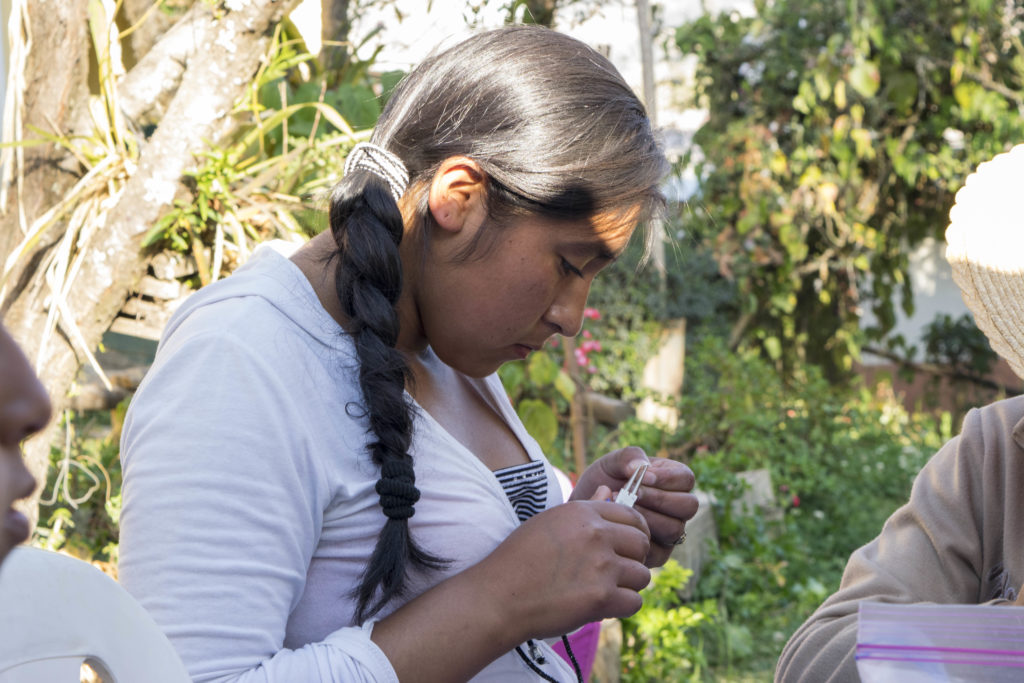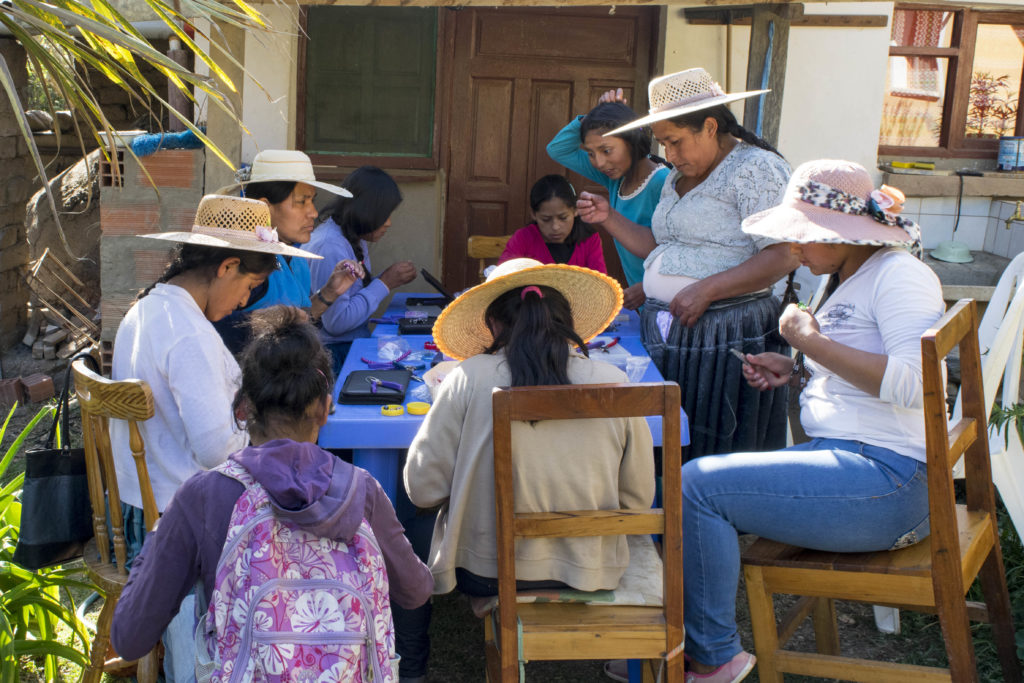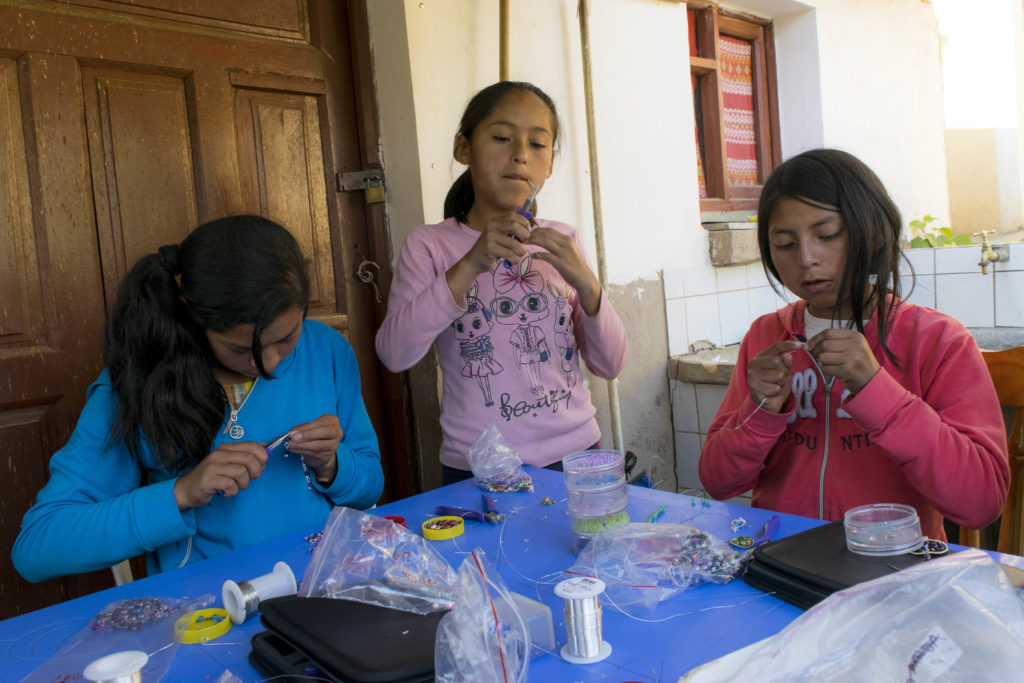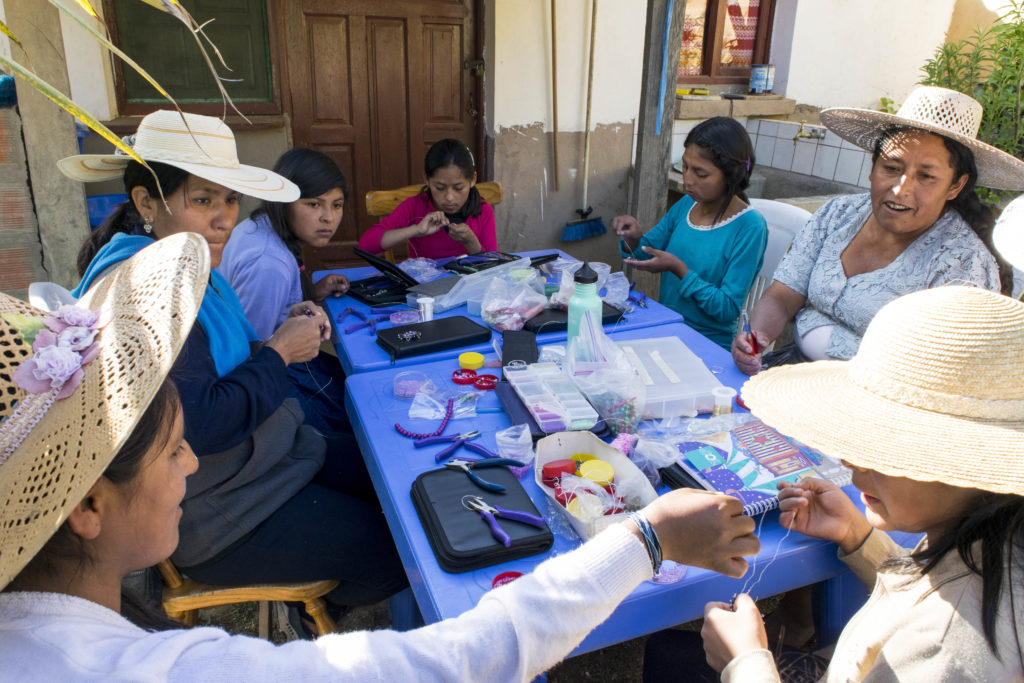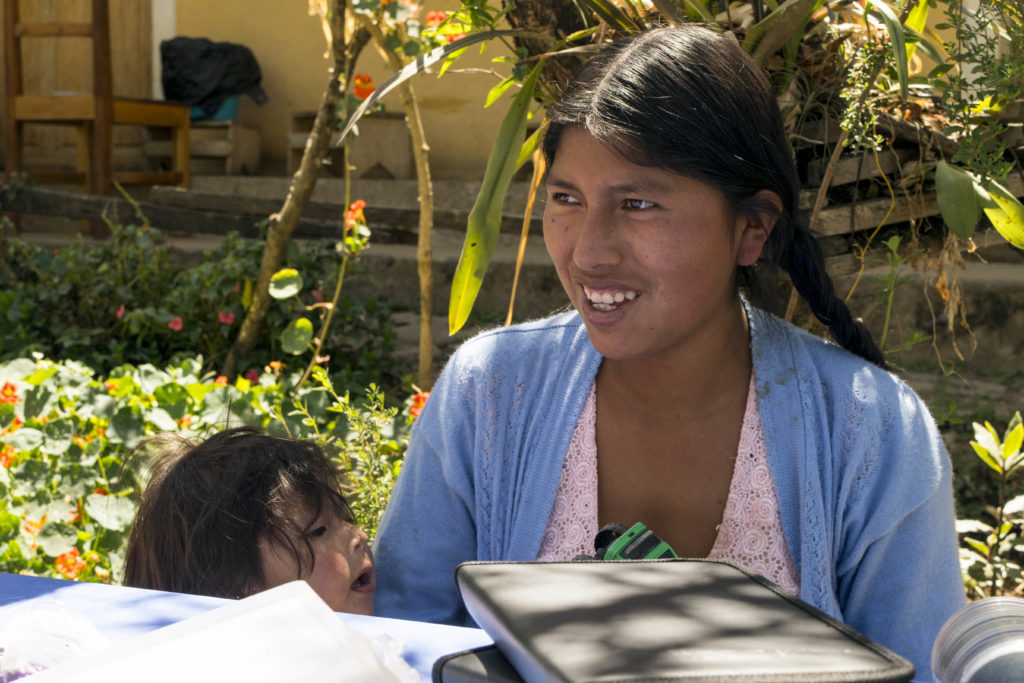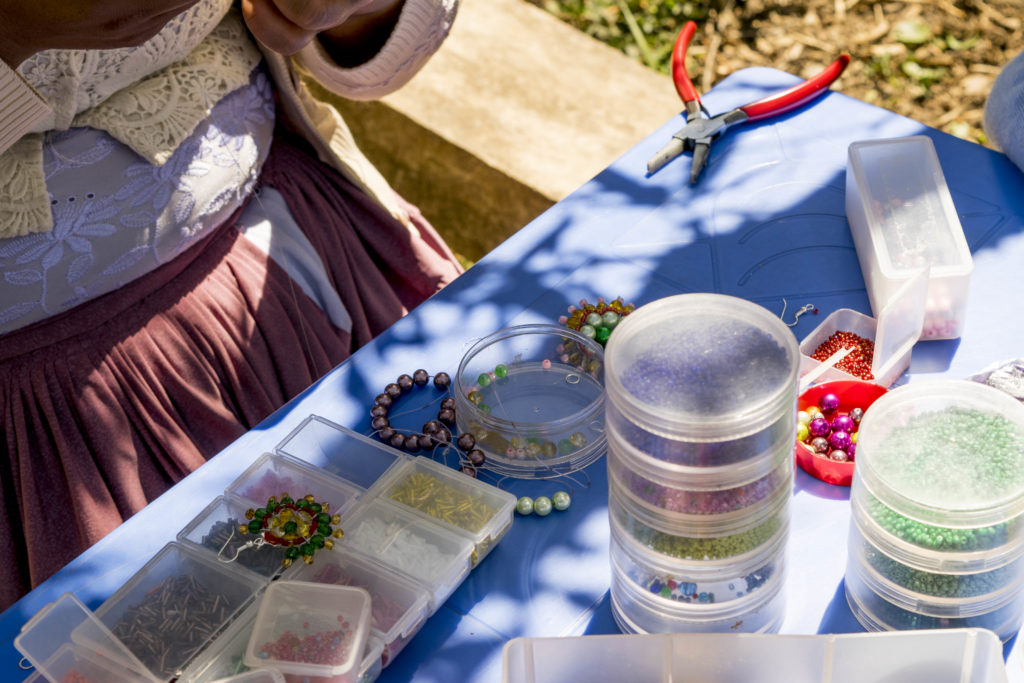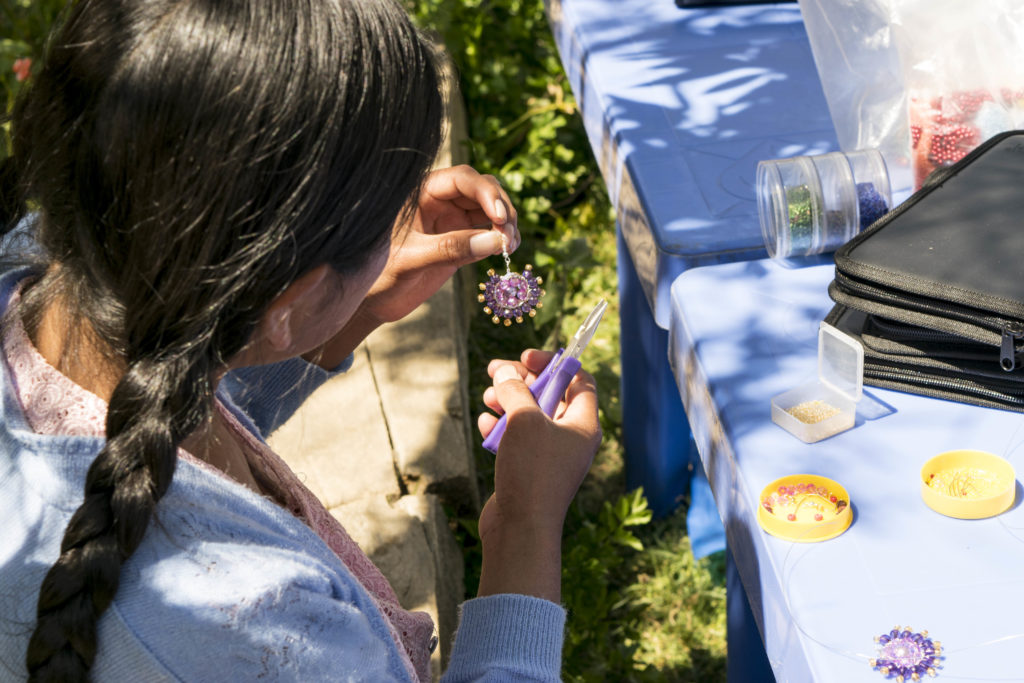Today at the prison I presented the women with a large order for embroidered jewelry and discussed how they were going to fill it. One of our goals this trip is to walk the women through the order fulfillment process so that they can receive, produce, and send an order without a Ruraq Maki representative being present.
This is important because, if the women are able to handle the entire order process themselves, then we can send them orders year round instead of just twice a year.
The goal today was to talk about some of the issues that come up in order fulfillment and discuss how to solve them.
First, we talked about the division of labor. The women decided that they wanted to split the order evenly amongst themselves so that everyone was paid the same amount.
Next, we discussed quality control and who would be in charge of reviewing the products. First, they said, “The rule is everyone has to embroider really well,” and I reminded them that well to one person is different than well to another. They agreed that “well” wasn’t really a standard and came up with some concrete standard for the products.
The next issue to discuss was accountability and how they would hold each other accountable for the quality of the product. They decided that they would review each other’s work and made an agreement that if someone said the quality wasn’t good enough, it wasn’t a personal attack on that person, just an opportunity to improve their work. (How amazing is this?)
The topic of order fulfillment came up. I asked what would happen if they reviewed the products and some weren’t good enough- how would they be able to fill the order on time if they need to make more product?
Their solution was that each person had to make at least 3 extra pieces so that they were guaranteed enough products for the order, even if some were not up to standard.
All of these decisions came from the women, not me, and I was so proud of the way that they thought through each of my questions and came up with a group solution. Not only was every single one of their solutions easy to implement, it actually did solve the problems we are facing.
Watching them make decisions amongst themselves reminded me that these women are budding leaders and the more control their have over their production, the more they embrace that role and become leaders within the prison and, hopefully, beyond.
